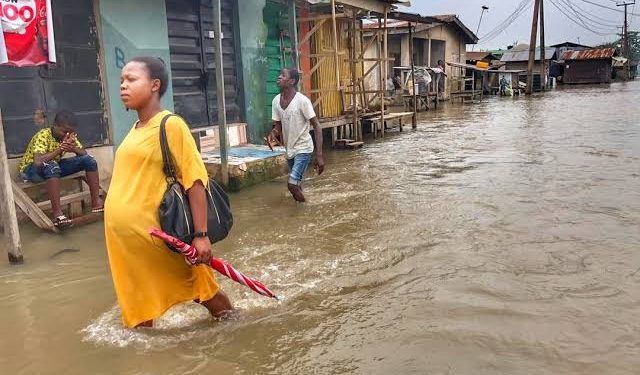To address the inequalities and challenges that women experience as a result of climate change impacts, Governments have been tasked to integrate gender perspectives into climate change mitigation and adaptation initiatives.
The charge was made by Lady Vickie Urenma, the Executive Director of Child Health Organization during a one-day journalism training on reporting climate change and the water sector organized by Citizens Free Service Forum (CFSF).
Urenma noted that “Climate change threatens to exacerbate the inequalities between women’s and men’s relationship to water”, adding that women bear the primary responsibility for water collection, spending significant time fetching water, which prevents them from gaining education and formal employment, entrenching them in poverty.
She also emphasized that climate change worsens water scarcity, affecting women disproportionately. In Sub-Saharan Africa, 319 million people lack access to improved drinking water sources. “Fetching water is a demanding task, particularly in Sub-Saharan Africa, where women and girls bear the primary responsibility,” she stated.
The Child Health Organization ED shared that it is important for decision-makers to “involve women in planning, financing, and implementing climate responses,” because “investing in women leads to environmental gains and greater returns across the Sustainable Development Goals.”
In his presentation at the training, Philip Jakpor, Executive Director of Renevlyn Development Initiative, explained the importance of providing adequate background information when reporting on climate change, specifically highlighting the differentiated impacts of climate change on vulnerable groups such as women, children, indigenous people and frontline communities.
Jakpor explained that “the media plays a crucial role in reporting climate change effectively”, and that media reports should criticize current industrial models and expose drivers of climate change while urging policymakers to make just and climate-friendly laws.”
He charged the journalists not to shy away from naming and shaming the drivers of climate change.
For her part, Hauwa Mustafa, the Executive Director of Tubali Development Initiative, urged journalists to engage in analytical reporting to help the public understand the politics, economics, and social culture of climate change.
Earlier, Comrade Sani Baba, Executive Director of CFSF in his welcome remarks shared that the training was conceived because the media is key not only in keeping the public informed as part of its watchdog role, but also in eliciting robust discourse that ultimately translates into policy responses and actions.
Baba added that the media plays a key role in reporting climate change and exposing its underlying causes, and added that “we must not forget that policymakers rely on what they read or hear or watch to be able to make laws that are rooted in facts. The task of ensuring the right information gets to them is shouldered by the media.”
Other speakers at the training were Michael Oche, a Labour reporter; and David Boys, Deputy General Secretary, Public Services International (PSI) Ferney Voltaire-France.

